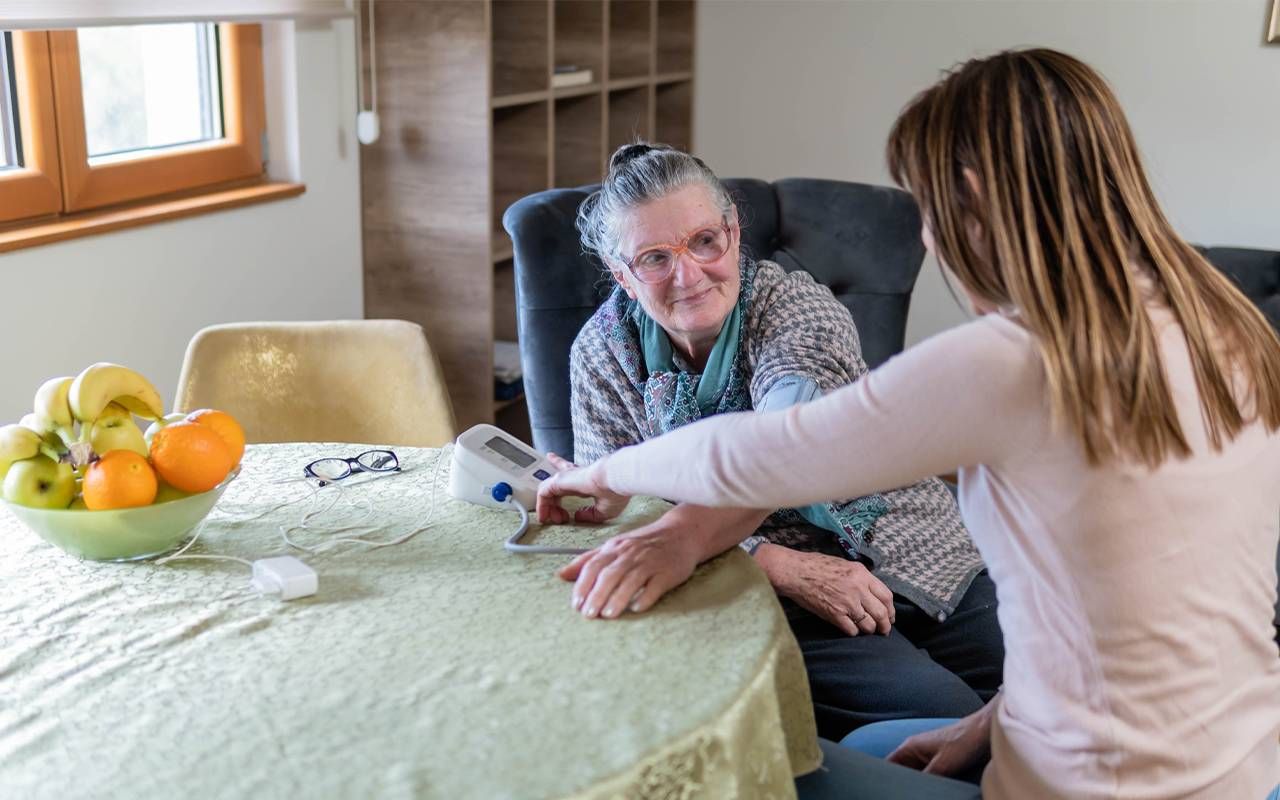Caregiving for Loved Ones With ADHD or Autism
Because there are so many variables, there isn't one strategy to follow. The key is identifying what works for your loved one.
When Sheldon Snodgrass was growing up, he and his family laughed at his father's distractedness, starts and stops of activities, and lack of focus. Now that his dad is in his 80s, living on his own since Snodgrass's mom passed away earlier this year, the behaviors that were once cute and tolerable have become a challenge to deal with as a long-distance caregiver. Snodgrass has noticed a marked reduction in the elder Snodgrass's executive function with increased agitation over the slightest issues.

"Dad doesn't accurately paint a picture of where he is at cognitively speaking."
"Dad doesn't accurately paint a picture of where he is at cognitively speaking. I think he's afraid of us knowing the truth, so he hides behind a facade," Snodgrass said. "He's very dismissive that there are any issues."
Neurodivergence, or thinking that "diverges" from what would be considered societal norms, is becoming a more familiar term with increased awareness and understanding of the myriad of ways people's brains are wired. With more recognition comes more diagnoses of non-neurotypical differences in children and adults alike, including attention deficit hyperactivity disorder (ADHD), autism, dyslexia, Asperger's or Tourette's, as several examples.
However, research is still playing catch up, and much about neurodivergence and the aging brain is unknown. One recent article in the Journal of Health and Rehabilitation Services addressed the complexities of assessing mild cognitive impairment (MCI) or dementia in adults with NACs (neuroatypical conditions) due to problems with comprehension, oral communication, motor task performance, recognition of assessment-related visuals and comfort in testing situations.
Researchers contend that diagnosing is complicated without the proper training and diagnostic tools for clinicians performing the evaluations.
Differences Between Neurodivergent and Neurotypical Aging
According to several experts, the shared link, regardless of neurodivergent condition, is that behaviors become amplified over time. In neurotypical aging adults, people may feel distressed if something is misplaced, for example, but the main variance to consider is the intensity level. Teepa Snow, a nationally known expert in compassionate dementia care, recommends caregivers ask themselves whether behaviors are new or if this is how their loved one has been all along.
"Aging may bring about challenges related to sensory sensitivities, social interactions and changes in routine."
Like Snodgrass's father, "As individuals who have ADHD (either assumed or diagnosed) get older, they tend to have elevated levels of frustration and paranoia, or tasks that were hard to begin with are now unmanageable," Snow explained.
In cases such as autism, "Aging may bring about challenges related to sensory sensitivities, social interactions and changes in routine," explained Ryan Sultan, a board-certified psychiatrist, professor and researcher at Columbia University and director of Integrative Psych. "Sensory processing challenges, such as heightened sensitivity to light or sound, may intensify, influencing daily functioning."
For those with Tourette Syndrome (TS), which is marked by involuntary movements and vocalizations (tics), it can evolve in its expression over time. "While tics may become less severe for some individuals, others may experience new challenges related to co-occurring conditions, such as anxiety or obsessive-compulsive disorder," Sultan said.
Developing Successful Caregiving Strategies
With approximately 50 million caregivers in the U.S. alone, this critical job comes in all shapes and sizes; a teenager assisting a parent, a spouse caring for their partner or an older adult supporting a neurodivergent adult child who cannot live independently. Because there are so many variables, there isn't one caregiving strategy to follow. However, there are things to keep in mind that may create a more accessible and more rewarding caregiving experience overall.
Ask Your Loved One What Will Be Helpful For Them
Kristin Vickers, a clinical psychologist with Mayo Clinic, described real-life examples of how well-meaning neurotypical loved ones can push solutions that reflect how they interact with the world.
- An older man with dyslexia (never formally diagnosed) was given reams of patient education to read, but he preferred to watch videos. He seemed disinterested in the content when given to him in writing. He would say he didn't have any questions about the information.
- An older woman with ADHD had difficulty with organization and clutter. Her daughter hired a professional organizer to come in and organize the women's home. The organizer put items in colored storage containers on a high shelf. Because people with ADHD are highly attuned to visual information, this patient could no longer see her items, ultimately not knowing where they were. Worse, her stuff was out of reach and required a step stool, which posed a safety issue.
- A woman with autism was preparing for surgery, and her caregiving relative had ADHD. The mismatch between too many stimuli for the patient and the spontaneity of the caregiver proved to be less helpful than the caregiver intended.
The recipe for a successful caregiving relationship includes maintaining your loved one's agency, dignity and voice.
Vickers recommends that caregivers be careful about making assumptions regarding their family member's need for help and how to provide that help. "Ideally, the person receiving care should determine what kind of help is helpful," Vickers said.
Meet Loved Ones Where They Are
Katrina Prescott (38) had been a caregiver to her single mom since she was young. Her mom had early-onset Alzheimer's and undiagnosed ADHD, which made the role of caregiver particularly challenging. Since Prescott's mom passed away nearly two years ago, she has become a caregiving consultant to help others navigate unchartered waters.
During the last couple of years with her mom, she said, "I realized I had to change to run this marathon and had a spiritual awakening. My mom was going to change, and she wouldn't be able to control it. But I could control my reactions." Prescott felt that once she stopped reacting to triggers and focused on self-care (no matter how little it was), communication improved between the two, and she found she had more energy for caregiving activities.
Know the Triggers
Another caregiver, Crystal (50s, who asked for anonymity), shared that when her husband was diagnosed with Asperger's in his early 40's, she wasn't surprised. "I realized at one point that everything was either black or white. There was never any middle," she said.
Asperger's, which is a high-functioning form of autism, can present itself in various ways, including a need for a structured routine, high-level attention to detail or difficulty navigating non-verbal cues. While Crystal's husband can manage independently, she has learned that he doesn't like chaos and has since developed strategies that provide a sense of calm for all involved. "Find the triggers," Crystal offered, "and build ways to work around them."
Be Honest With Yourself
For older adults who have both cognitive impairment and are neurodivergent, Snow said, "You need to be ready for the next shiny thing when supporting someone with ADHD and dementia." However, putting this into practice can be difficult based on previous relationship history or neurodivergence (often hereditary).
"It's OK to seek another source of primary care for your loved one," Snow said. "Pause and consider, 'Is this the right and good match for me?'" She added, "There can be many other ways to help that don't end up hurting relationships."
Ultimately, the recipe for a successful caregiving relationship includes maintaining your loved one's agency, dignity and voice, where possible.


